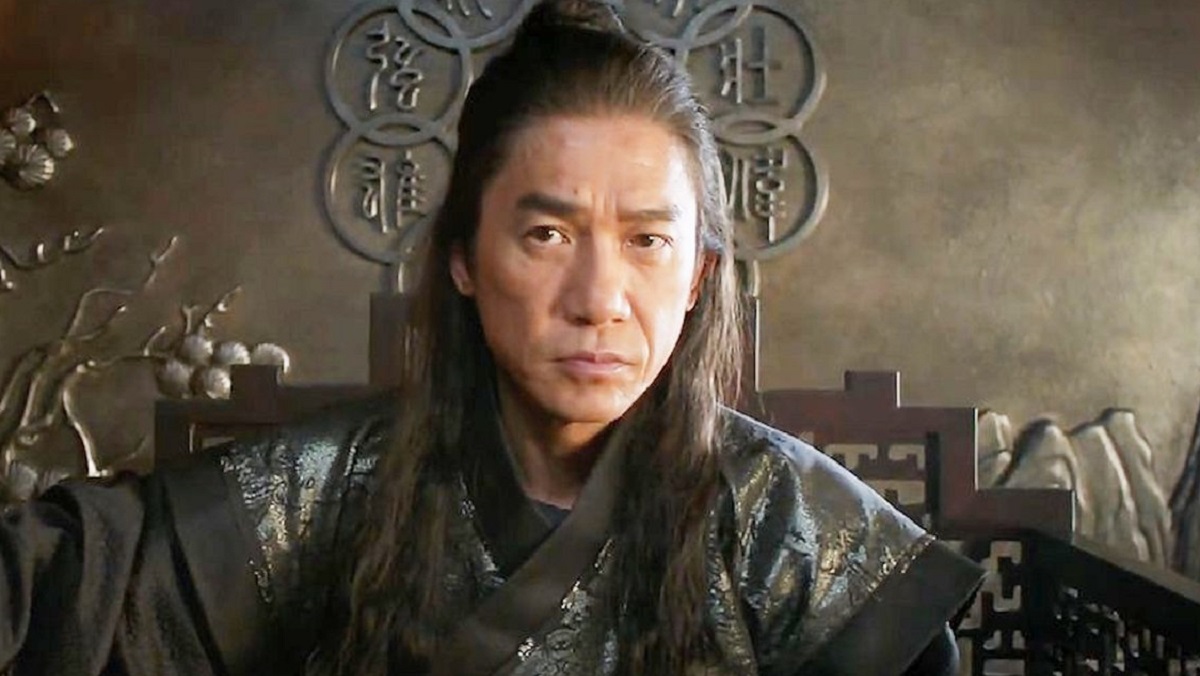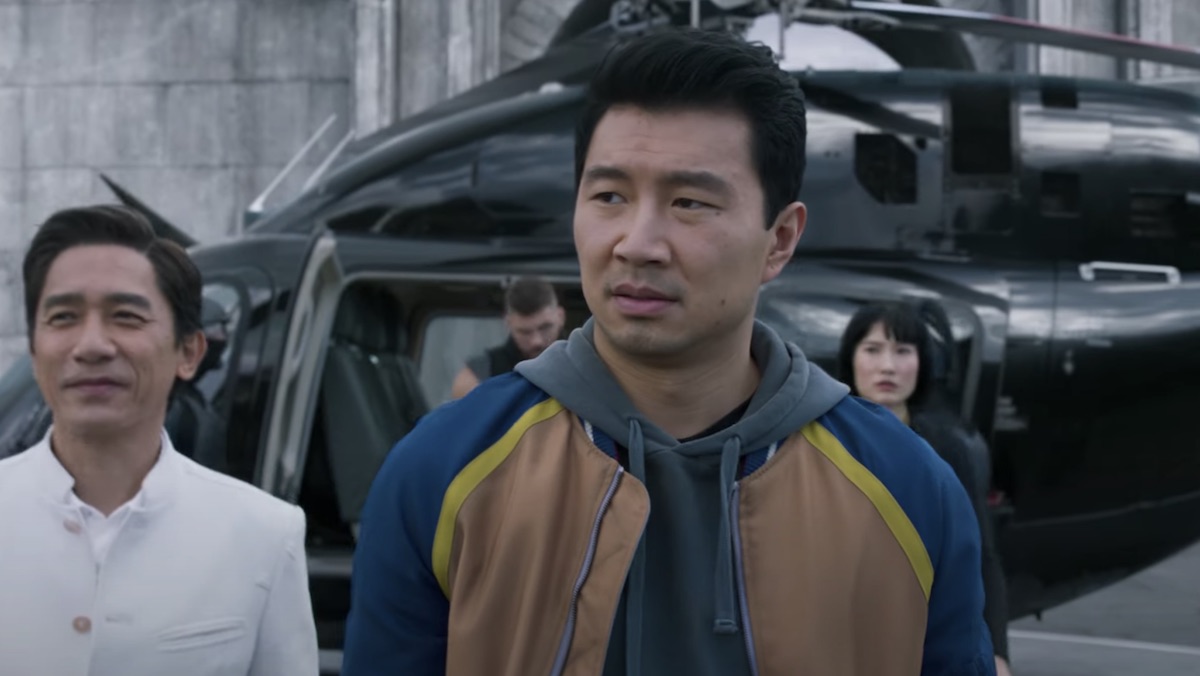Plenty of Avengers have had to grapple with generational trauma and their father’s legacies—Tony Stark, T’Challa, and Thor among them. But few have had to face their dads quite like Shang-Chi. The 25th film in the MCU, Shang-Chi and the Legend of Ten Rings isn’t just the franchise’s first film featuring an Asian protagonist. It’s also an arresting family drama that blends in fantastical creature effects and high-flying, ethereal wushu to devastating and gorgeous effect.

Marvel Studios
From the opening moments, director Destin Daniel Cretton establishes that though it says Shang-Chi on the tin, the film is really about the story of his father. Played by legendary Hong Kong actor Tony Leung, here his name is Wenwu—a character unique to the MCU and a welcome update from the comics, where Shang-Chi’s father was the cringeworthy and racist Fu Manchu. The tale begins a thousand years in the past. Wenwu is the general of the Ten Rings army. Wielding the eponymous weapons—in the comics they’re literal finger rings, but here they’re powerful vambraces of unknown origin—Wenwu is both ageless and unstoppable. He conquered most of the ancient world, and as warfare changed, so too did his organization. Now he topples governments from the shadows, but despite his reach he longs for more.
He sets his eyes on breaching the legendary Ta Lo, a hidden village full of mythical creatures. But he’s thwarted by Jiang Li (Fala Chen), a beautiful woman who easily bests him using a flowing, open-handed art form. Bamboo leaves swirl as they dance, fall in love, and later have two children: Shang-Chi and his younger sister Xialing. This backstory is heartachingly rendered, drawing aesthetics from historical C-dramas and wuxia films like House of Flying Daggers. You’d be forgiven for wanting the film to just end here, as Cretton paints one of the most beautiful love stories in the MCU within a span of a few minutes.

Marvel Studios
But you know it’s not to last, and we soon catch up with Simu Liu’s adult Shang-Chi (pronounced like “song,” not “sang,” just FYI) in San Francisco. More similar to someone like Scott Lang than Steven Rogers, Shang-Chi is good-natured but aimless. Alongside Awkwafina’s Katy, he works a valet stand, bats away questions about his bachelordom, and stays out late to croon karaoke. He speaks nothing of his upbringing, so Katy is reasonably startled when their routine bus ride turns into the seemingly unassuming Shang-Chi beating down several assassins sent by his dad. Wenwu might have been a good father once, but something clearly terrible happened. This encounter sends Shang-Chi across the globe to hopefully reunite with his sister, face their father, and decide whether they can overcome their own pasts.
While the premise of confronting a bad parent isn’t a novel one, the story soars largely thanks to the skill of Leung. Wenwu could’ve easily been a one dimensional villain, but Leung imbues him with such passion and pathos that it’s hard not to root for him, even when you know he’s making awful decisions. (It helps of course that Leung is still incredibly handsome at 59, as everyone on Twitter agrees.) He’s basically the MCU equivalent of a wife guy, and the way he navigates his own grief and failings is easily one of the highlights of the film.

Marvel Studios
The story is also buoyed up by Meng’er Zhang’s performance as the fiery Xialing—her first acting role, by the way, which is hard to believe—and Michelle Yeoh’s role as the calm Jiang Nan, Shang-Chi’s aunt. Even Awkwafina shines as the cheerful Katy, who quickly proves she’s not just there for comedic effect. A film centered on a man confronting his own father could’ve easily turned into an all-male slugfest, but Cretton was careful to surround Shang-Chi by a number of strong women who, in most cases, are wiser and more skilled than he.
The core of the story is truly all these relationships, but that’s not to say that the martial arts scenes lag in any way. Liu does a fantastic job with the choreography, especially so because at no point does Shang-Chi wear a mask that would allow a stunt-double to easily swap in. Cinematographer Bill Pope, along with editors Nat Sanders, Elísabet Ronaldsdóttir, and Harry Yoon also ensure that every punch and kick have real impact. The fight scenes are all kinetic and genuinely fun. This is definitely not Netflix’s Iron Fist, if that was ever a concern.
If there’s any drawbacks to the film, the inclusion of a former MCU side character feels more distracting than comedic. It’s meant to deconstruct Marvel’s earlier use of the Mandarin as a villain, but it feels like that could’ve remained a conversation piece rather than a full-blown cameo. Viewer’s mileage might also vary on the third act of the film, when the CGI comes out in full force. Depending on your love of the fantasy genre and things like Studio Ghibli, you might find the final battle entirely too much. (Or, like me, you’ll absolutely go along for the ride.)
In the end, Shang-Chi is a wildly ambitious film, full of touching cultural homages, amazing fight scenes, and three-dimensional characters. As the first new addition to the Avengers in Marvel’s Phase Four, it’s impossible to not feel excited for what Shang-Chi and his crew will bring to the MCU next.